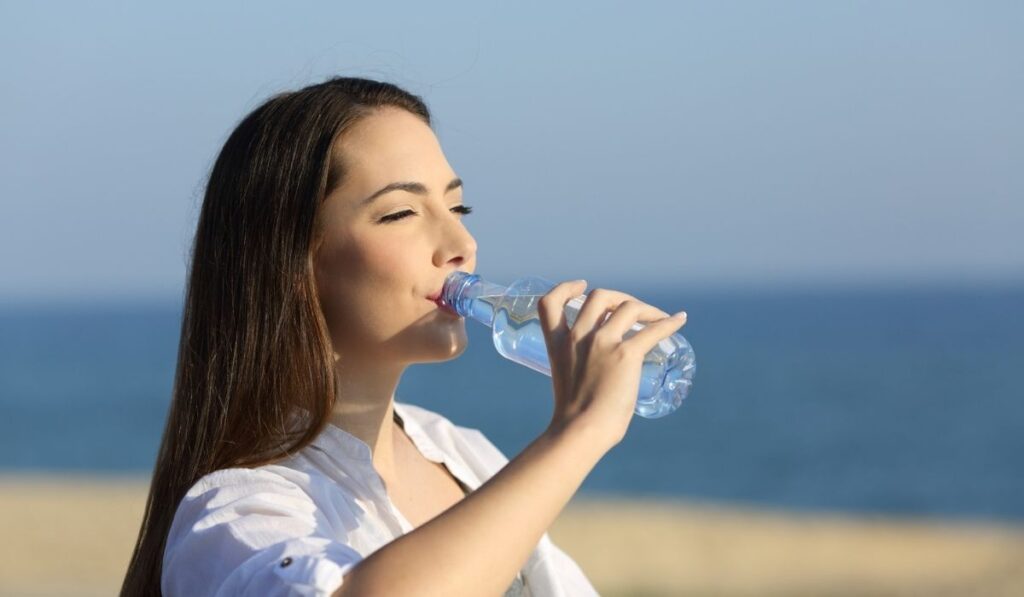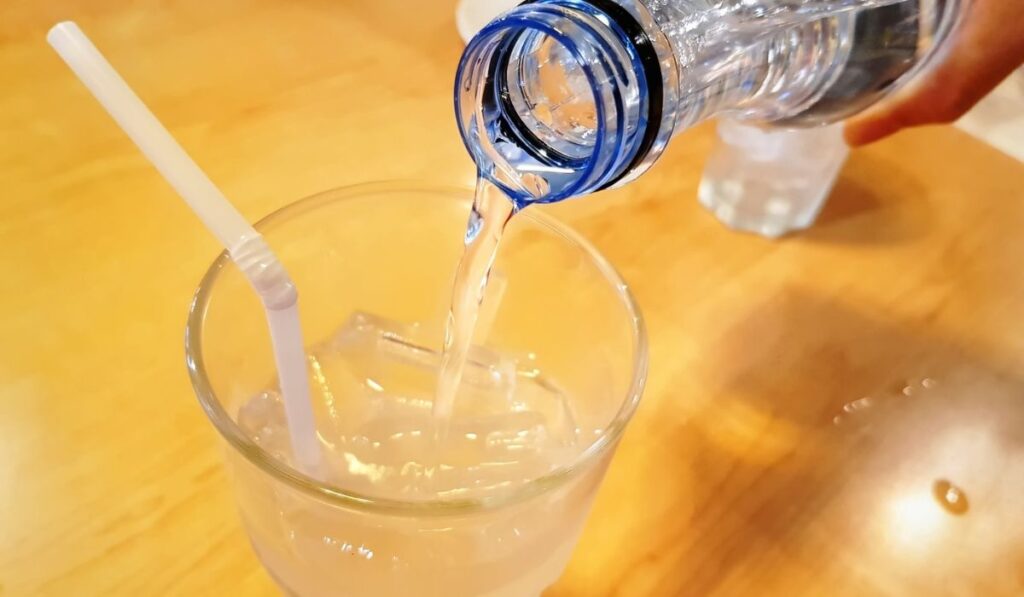If you’re like most people, you’ve heard the warnings that acidic foods and beverages can cause erosive damage to your teeth. Nonetheless, it seems impossible to get through a day without someone pushing a bottle of bubbly drink in front of our faces. But the big question is whether mineral water is as bad for your teeth as soda.
Plain mineral water with is way better for your teeth than soda. Sparkling mineral water is a bit acidic, and if sugary flavorings are added then it might as well be soda as far as your oral health is concerned, not bad, but you should consume in moderation and practice good oral hygiene.
Mineral water on its own isn’t something you need to be too concerned about, and it’s usually a much better option than many of the other beverages that you’ll find out there, and even sparkling mineral water that isn’t loaded down with sugar is better for your teeth than soda (though it’s still slightly acidic). Let’s take a closer look at mineral water and how you can keep your teeth safe.
Does Mineral Water Cause Tooth Decay?

Mineral water on its own shouldn’t cause tooth decay, even when it’s carbonated and therefore a bit more acidic than flat water.
Carbonated water’s pH is generally around 4.5, which is indeed somewhat acidic. However, if we compare it to many other beverages we consume, it’s not something to be very worried about. Furthermore, studies have shown that the acidity in carbonated water won’t do much harm.
Soda, sports drinks, canned iced tea, and lemonades, however, tend to have a very low pH, which can cause bad dental health and tooth decay. Gatorade, for example, has a pH of around 3; orange juice has a pH of approximately 3–4; and Coke has a pH of approximately 2.4.
Even though enamel is the strongest part of the body, it can be damaged by the acids found in sodas and other drinks, and the more acidic the beverage (the lower the pH), the faster the enamel deteriorates.
Tooth enamel dissolves at a pH of less than 5.5. To keep your teeth healthy, you need to remember that exposed root surfaces decalcify at a rate twice as fast as enamel.
Carbonated drinks and other drinks may have carbonic, phosphoric, malic, citric, tartaric, and other acids in them, which makes them acidic.
Root beer appears to be the least harmful soft drink to tooth enamel. Additionally, bottled iced tea and non-cola beverages promote higher enamel degradation than cola beverages.
How Do You Protect Your Teeth While Enjoying Mineral Water?

Although basic mineral water shouldn’t harm your teeth, there are some precautions you can take to minimize the potential for damage. Also keep in mind that many sparkling waters have ingredients added for flavor; those ingredients may greatly increase the chances of damage to your teeth.
Below are five preventive measures you can take to protect your teeth while enjoying mineral water.
1. Drink Mineral Water With a Straw
One of the simplest methods to avoid damaging your enamel is to sip mineral water through a straw rather than drinking it from a glass. The straw guides the acidic beverage away from your teeth and away from the back of your mouth.
If you want to sip your lemon water on the move, have paper or metal straws in your purse.
2. Eat a Calcium-Rich Meal to Help Neutralize Mouth Acid
Consuming calcium-rich meals can help restore minerals to your teeth, so consume dairy or calcium-rich foods. For instance, nibble on the following:
- Broccoli florets
- Cheese
- Yoghurt
- Milk
3. Rinse Your Mouth With Ordinary Water
After finishing your mineral water, swirl plain tap water in your mouth for around ten seconds and spit it out. Minerals in saliva help to build and preserve the teeth. Additionally, you can consume sugar-free gum to increase saliva production.
Drink lots of ordinary, fluoridated water in general; it’s the healthiest beverage for your teeth, as it contains fluoride. Drinking water with fluoride naturally helps to prevent cavities, washes away the leftover food that cavity-causing bacteria feed on, and stops your mouth from drying out (which can put you at a higher risk of cavities).
4. Brush Your Teeth At Least 30 Minutes After Drinking Mineral Water
While you may believe that brushing your teeth right after consuming mineral water is the best course of action, this might cause further damage to your teeth.
Acidic drinks weaken your enamel, making it more delicate and susceptible to harm from brushing, so it’s best to wait at least 30 minutes. If you have trouble remembering to brush, use your phone’s timer to remind you.
5. Use a Soft Toothbrush and Fluoridated Toothpaste
When it comes time to brush, be sure to use a soft or ultra-soft bristled toothbrush, like this one from Oral-B (on Amazon), and clean your teeth gently. Brush evenly in a circular manner to avoid causing damage to your teeth’s enamel.
Fluoride in toothpaste restores and preserves your teeth’s enamel. Opt for a toothpaste that contains fluoride, like Colgate’s Cavity Protection Toothpaste (on Amazon).
What Are the Health Benefits of Sparkling Mineral Water?
Is it possible to get some health benefits from drinking sparkling water? Yes, there are some health benefits, including the following:
- It can improve your swallowing ability. Drinking sparkling water may help keep your throat clean.
- It can increase your sense of fullness. Drinking plain water can help you feel full, but sparkling water can help you feel full even more quickly.
- Constipation can be alleviated by drinking sparkling water. It may also help with digestive concerns such as stomach discomfort.
Finally, sparkling water has lower acidity and lower sugar content than soda. However, if you are very worried about your teeth getting worn down, don’t drink too much sparkling water.
